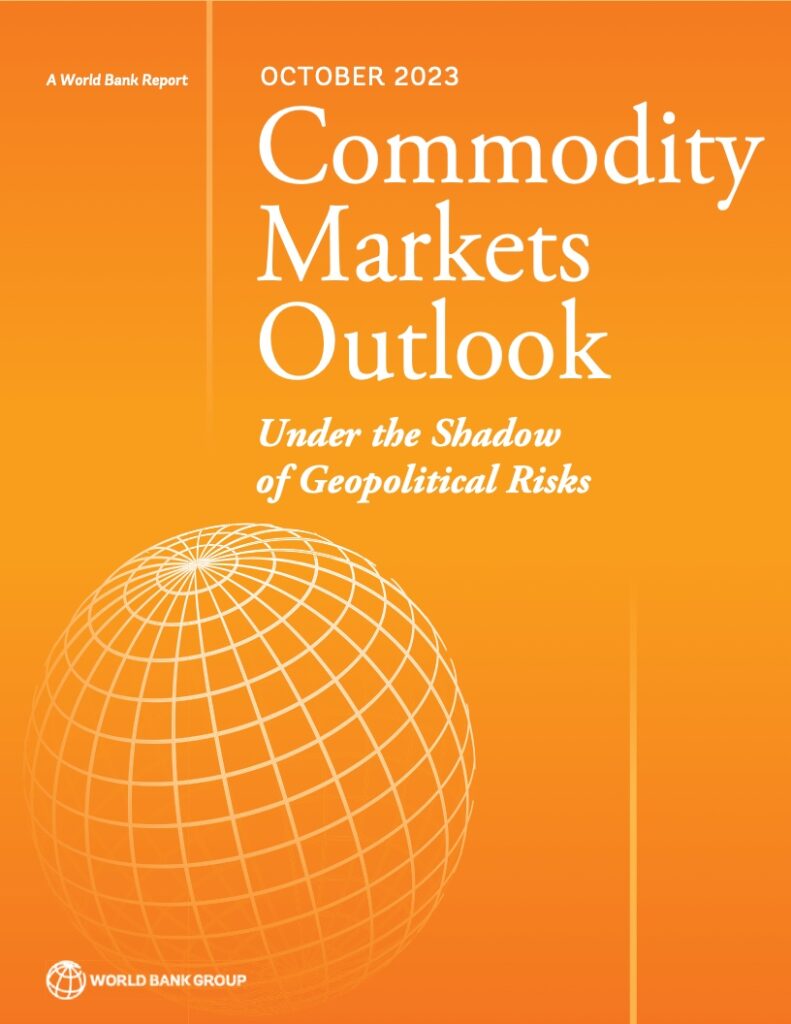Introduction
In our rapidly changing world, geopolitical tensions have the power to send shockwaves through global commodity markets, directly affecting economies worldwide. Recently, we’ve witnessed escalating conflicts in the Middle East and the ongoing Russia-Ukraine crisis. These events have led us to conduct a preliminary assessment of the potential impacts on commodity markets. In this concise review, we’ll delve into key insights from the latest “Commodity Markets Outlook” report by the World Bank, focusing on the immediate implications.
Evaluating the Immediate Impact
The World Bank’s report provides an initial analysis of the immediate effects of these conflicts on commodity markets. While the report suggests limited impacts if the conflicts remain contained, it’s essential to understand potential scenarios and be prepared for contingencies.
Exploring Hypothetical Scenarios
The report outlines three hypothetical scenarios, stressing that the extent of oil supply disruptions will determine the outcome:
- Minor Disruption: In this scenario, a minor disruption could lead to a daily global oil supply decrease of 500,000 to 2 million barrels. This would result in oil price increases of around 3% to 13%, with prices estimated at $93-102 per barrel.
- Moderate Disruption: Similar to the 2003 Iraq War, a moderate disruption envisions a daily reduction of 3 to 5 million barrels of global oil supply. This would trigger initial oil price surges of 21% to 35%, reaching approximately $109-121 per barrel.
- Major Disruption: In a severe scenario, equivalent to the 1973 Arab oil embargo, the global oil supply could drop by 6 to 8 million barrels per day. This would lead to an initial oil price spike of 56% to 75%, with prices hitting $140-157 per barrel.
Global Food Insecurity and Inflation
High oil prices often correlate with rising food costs, exacerbating food price inflation. As global malnutrition threatens to exceed 700 million people by the end of 2022, an escalation in recent conflicts could worsen food insecurity, extending its reach across the world.
Strengthened Global Resilience
Despite the turmoil, the limited impact on commodity prices so far reflects the world’s improved capacity to withstand oil price shocks. Countries have taken measures to diversify energy sources, establish strategic oil reserves, and create coordinated supply arrangements and futures markets. Collectively, these actions reduce the severity of disruptions.
The Importance of Remaining Prepared
In these uncertain times, vigilance is crucial. While the initial effects of the conflicts on commodity prices have been contained, some commodities, notably gold, have displayed concerns. Gold prices often rise during geopolitical instability, signaling wavering investor confidence.
As the conflicts continue to evolve, policymakers in developing countries must be prepared to manage rising inflation rates. Instead of imposing trade restrictions that may lead to price volatility and worsen food insecurity, governments should enhance social safety nets, diversify food sources, and improve food production and trade efficiency. Transitioning to renewable energy sources can also bolster energy security, mitigating the impact of oil price shocks.
A Quick Overview
This rapid review provides a vital glimpse into the potential impact of geopolitical conflicts on commodity markets. For a more comprehensive understanding and detailed insights, we encourage you to download the complete “Commodity Markets Outlook” report by the World Bank.
#CommodityMarkets #GeopoliticalConflicts #GlobalEconomy #OilPrices #FoodInsecurity #WorldBank #EconomicOutlook
Stay informed, and be prepared for the challenges that may arise in today’s interconnected world. You can access the complete report https://fitsbuy.com/wp-content/uploads/2023/11/Commodity-Markets-Outlook.pdf for an in-depth analysis of the current situation and its implications.
(For more information, please refer to the original website: https://www.worldbank.org/)

